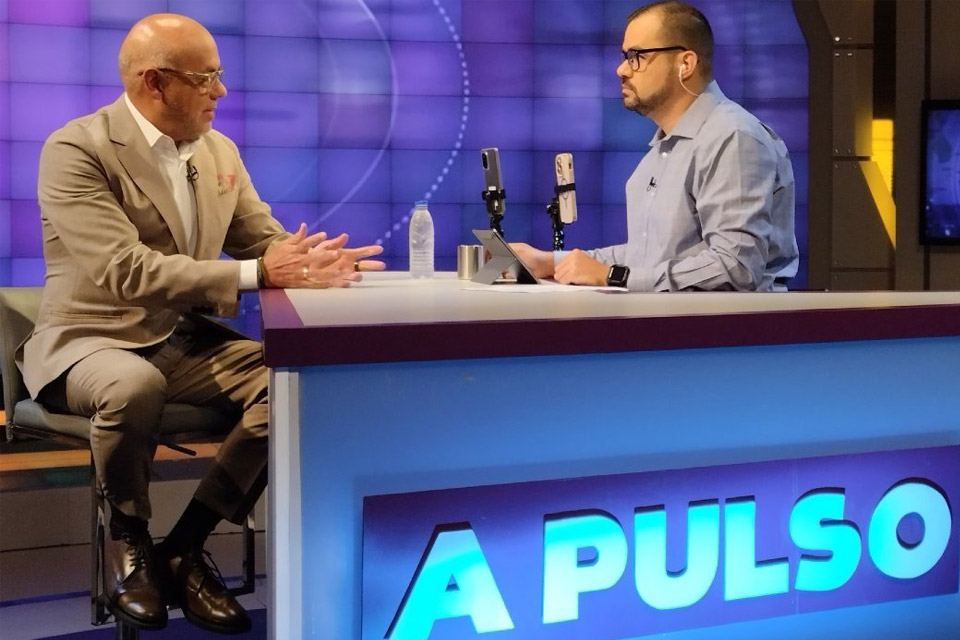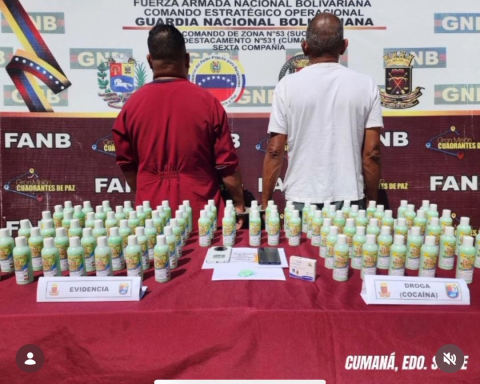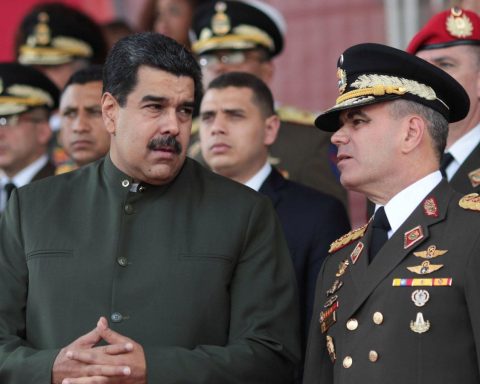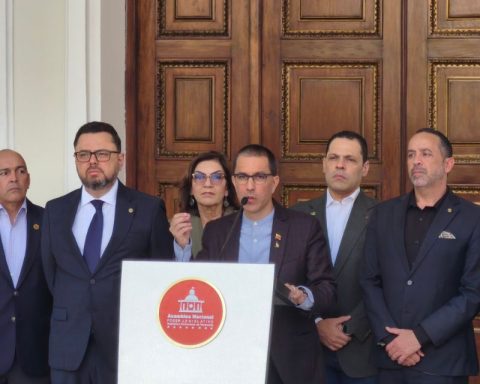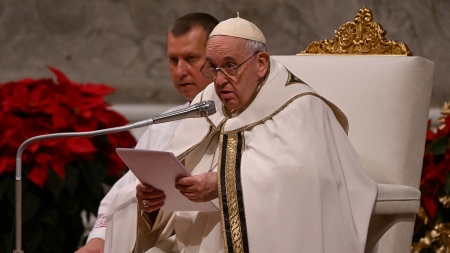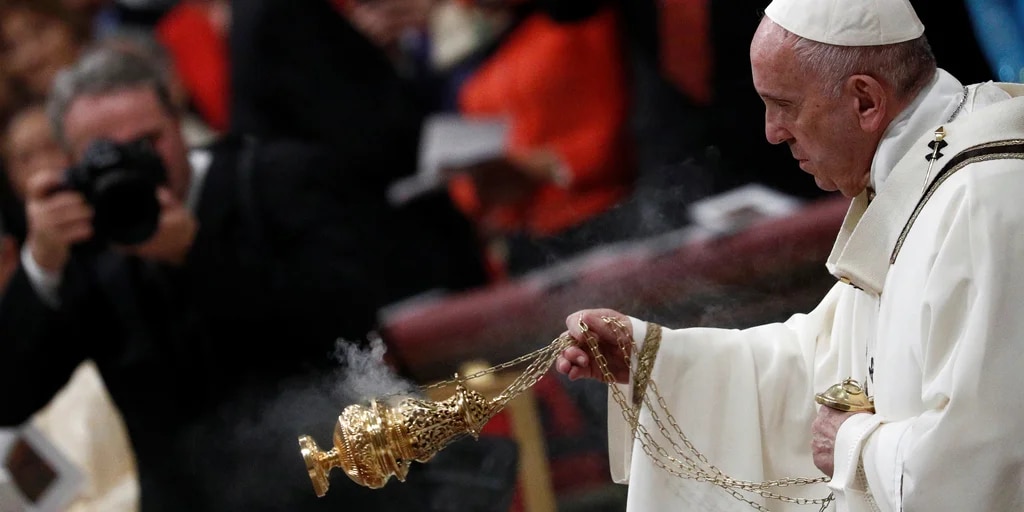Regarding the dialogue process with an opposition that shows signs of being fragmented, Jorge Rodríguez limited himself to explaining that they are waiting for the social agreement signed in Mexico in mid-November to materialize. He avoided going into details about the future of political negotiations and the presidential elections.
The president of the National Assembly (AN) elected in 2020, Jorge Rodríguez, said he was not surprised by the possible expiration of the interim government led by Juan Guaidó, after opposition parties discussed a proposal in the AN elected in 2015 to end the that figure.
“They knew that this adventure had a very short expiration time, that it was impossible to support a man who says he is the president of a country from the condominium room of the building where he lives,” he said in an interview for VTV.
This opinion was issued after Acción Democrática (AD), Un Nuevo Tiempo (UNT), Primero Justicia (PJ) and Movimiento por Venezuela (MPV) proposed a reform to the Statute Governing the Transition to Democracy, which would imply maintaining the AN solely to defend Venezuela’s assets abroad and dismantle the interim government. The proposal got 72 votes in the first discussion, against only 23 in favor of maintaining the interim.
Given this scenario, Rodríguez was questioned about the possible effect that the dialogue table would have, considering that the interim government heads the Unitary Platform with which Chavismo sat down to negotiate.
The deputy reserved his conclusions and affirmed that what is being considered now is to wait for the social agreement signed in Mexico to conclude on November 26, so that progress can be made in social projects.
“We are waiting for the real conclusion of an agreement like the one that was reached, for the funds to be finalized at the UN. We knew the responsibility we were assuming by signing a $3.2 billion agreement directed directly to the people, hospitals, schools, risk mitigation, and the national electrical system without going through instances that hinder this process,” he said.
The also head of the Chavista delegation at the dialogue table stressed that the allocation of this money to finance social projects is a fact, since the United Nations Organization (UN) cannot refuse to deliver the resources given the mechanisms established in agreement by mutual consent of the parties.
“The UN cannot refuse to deliver the resources because all the mechanisms that were established are well closed. They are projects defined by Bolivarian government technicians reviewed by opposition technicians”, he stated.
*Read also: Convergence Party advocates unity in the face of eventual dissolution of the interim
Rodríguez zigzags questions
Despite the fact that the interview took place in a controlled environment for the Chavista militancy, on the state channel VTV and was conducted by a militant from the United Socialist Party of Venezuela, Julio Alberto RiobóIn the same way, Rodríguez found himself in need of avoiding some issues.
The official responded to statements that Fuerza Vecinal made after meeting with Nicolás Maduro, especially regarding food problems suffered by a large percentage of the population.
Rodríguez avoided stating that the majority of the population eats three times a day and instead stressed that the country has faced problems resulting from the sanctions that many of the members of Fuerza Vecinal requested.
“It is curious that those who promoted the causes of this complain about the consequences. They wanted Venezuela to fall into chaos,” he declared.
On the other hand, he did not clarify if the situation of Alex Saab —whom the United States justice does not recognize as a diplomatic envoy of Venezuela— could jeopardize the continuity of the dialogue table in Mexico.
“That was a legal barbarity (the sentence that ignores the diplomatic status of Saab). All the lawyers who have reviewed that request appeal made by Saab’s defense for recognition of his diplomatic status think so. The appeals processes will come. There is no way that they can avoid it if it were not because they are sectors full of hate, “he said.
In his response, Rodríguez did not specify whether Chavismo will respond to the progress of the judicial process against Saab, since his extradition to the United States was what motivated the Chavista delegation to leave the dialogue table on the previous occasion.
Similarly, regarding the possibility of advancing the presidential elections to 2023, as other Chavista officials have suggested, Rodríguez only assured that “they are talking to the whole world” and listening to the opinions of different sectors, but that there is only one approach. in making 2023 a “wellness” year.
“We are talking to everyone and listening to everyone, not just a politician with the opposition, it is a social dialogue with the people and the economic factors of the country as well. We have met the needs of entrepreneurs. I think we have to concentrate so that in 2023 this process of well-being and economic recovery is strengthened, “he insisted.
Finally, he was imprecise when questioned by a VTV viewer about the progress of civil and social laws that respond to the demands of feminist groups or the LGBTQ+ community within the National Assembly, such as the decriminalization of abortion or the legalization of gay marriage.
«We have had a position to seek a fruitful discussion on the issues of laws related to the family. Have no doubt that, when the commission raises the issues related to these points to the plenary, no matter how critical they may be, we will give the discussion, “he said.
Post Views: 775
